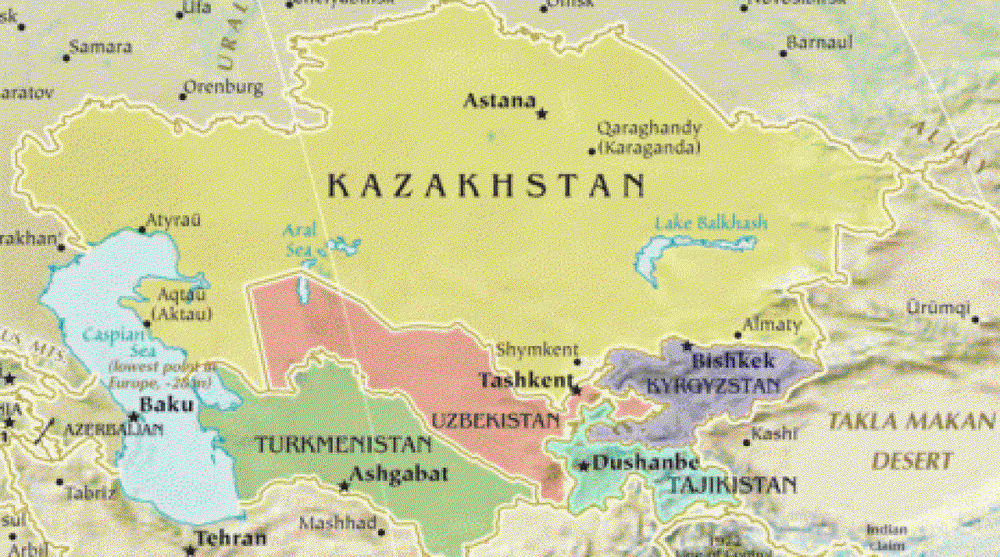
The European Court of Auditors (ECA) has concluded that the Commission and the European External Action Service (EEAS) had developed a good plan of assistance to Kazakhstan, Kyrgyzstan, Tajikistan, Turkmenistan and Uzbekistan for the period of 2007-2012, but was implementing it overly slowly, Tengrinews reports citing a special report on European Union development Assistance to Central Asia issued by the ECA. “The Commission and EEAS made serious efforts, under challenging circumstances, to plan and put into effect the program. This resulted in generally satisfactory planning and allocation of assistance but with slow and variable implementation,” the press-release of the ECA says. The ECA said that the Commission ignored the best practice in this field, and divided the assistance to a wide number of sectors and supplied many small projects with it, increasing the administrative work of the Commission’s representatives in the Central Asian countries. The ECA believes that use of an overly wide range of financial instruments and introduction of a complex system of decision-making was the worst part. Besides, the Commission didn’t attempt to make assessments of the global administrative expenditures for the Central Asian development assistance programs. The audit showed that the European Commission should have been more careful in managing of the budget support programs in Tajikistan and Kyrgyzstan and should have subject it to certain anti-corruption measures. The decisions on funding were based only on partner-states obligations to introduce certain reforms not the progress achieved. The audit concluded that the realization of the programs was slow in general. Besides, the regional program didn’t actually accomplish a real regional scale. The Commission's reports on the assistance program implementation were mostly focused on measures taken, rather than results achieved. According to the analyses, the ECA provided recommendations to the Commission and EEAS concerning their work with Central Asian countries. The recommendations call them to develop a proper budget calculation and control, improve results reporting and pay more attention to support of anti-corruption mechanisms.





The European Court of Auditors (ECA) has concluded that the Commission and the European External Action Service (EEAS) had developed a good plan of assistance to Kazakhstan, Kyrgyzstan, Tajikistan, Turkmenistan and Uzbekistan for the period of 2007-2012, but was implementing it overly slowly, Tengrinews reports citing a special report on European Union development Assistance to Central Asia issued by the ECA.
“The Commission and EEAS made serious efforts, under challenging circumstances, to plan and put into effect the program. This resulted in generally satisfactory planning and allocation of assistance but with slow and variable implementation,” the press-release of the ECA says.
The ECA said that the Commission ignored the best practice in this field, and divided the assistance to a wide number of sectors and supplied many small projects with it, increasing the administrative work of the Commission’s representatives in the Central Asian countries.
The ECA believes that use of an overly wide range of financial instruments and introduction of a complex system of decision-making was the worst part. Besides, the Commission didn’t attempt to make assessments of the global administrative expenditures for the Central Asian development assistance programs.
The audit showed that the European Commission should have been more careful in managing of the budget support programs in Tajikistan and Kyrgyzstan and should have subject it to certain anti-corruption measures. The decisions on funding were based only on partner-states obligations to introduce certain reforms not the progress achieved.
The audit concluded that the realization of the programs was slow in general. Besides, the regional program didn’t actually accomplish a real regional scale. The Commission's reports on the assistance program implementation were mostly focused on measures taken, rather than results achieved.
According to the analyses, the ECA provided recommendations to the Commission and EEAS concerning their work with Central Asian countries. The recommendations call them to develop a proper budget calculation and control, improve results reporting and pay more attention to support of anti-corruption mechanisms.
Uzbekistan
audit
Central Asia
Europe
European Commission
Kazakh
Kazakhstan
Kyrgyzstan
news
program
Tajikistan
Turkmenistan
assistance

 +7 (777) 001 44 99
+7 (777) 001 44 99















































